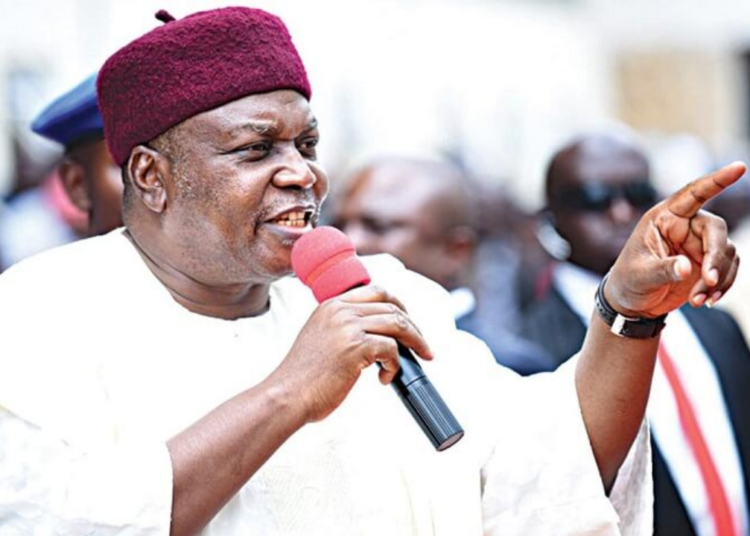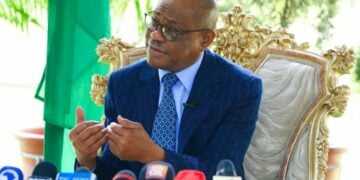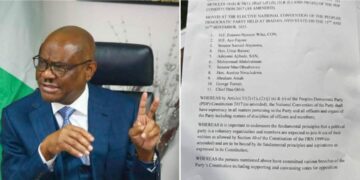Governor of Taraba State Darius Ishaku has urged his incoming successor, Agbu Kefas, to focus on “stomach infrastructure” when he assumes office.
LEADERSHIP reports that “Stomach infrastructure” is the unofficial system of government, especially at the state level in Nigeria where the governors embark on programmes and projects that directly provide food for the vulnerable.
‘Stomach infrastructure’ crept into the country’s political lexicon during the 2014 governorship election in Ekiti State when the Peoples Democratic Party (PDP’s) candidate Ayodele Fayose influenced voters with food items and defeated the then-incumbent All Progressives Congress (APC) governor Kayode Fayemi.
Political analysts say “stomach infrastructure is a reality projected by the Nigerian politicians on the vulnerable electorate who, for poverty, are encouraged to mortgage their fundamental right of freedom to choose who governs them in exchange for immediate gratification.”
Ishaku gave the advice when he hosted the governor-elect at Presidential Lodge in Jalingo, the state capital. Agbu Kefas was at the lodge to present the certificate of return which was issued to him by the Independent National Electoral Commission (INEC) in Jalingo.
Ishaku’s advice came after he lost his bid to represent Taraba South senatorial district, and campaigned on the level of infrastructure he had provided for the people of the state during his eight years as Taraba governor.
He said, “We have laid a solid foundation since we came in eight years ago, the incoming administration can build on it to excel, particularly on the side of infrastructure. For me, what I can advise is that from my experience recently is that the people here in Taraba need more of ‘stomach Infrastructure’ than the physical one.
“The incoming administration is full of energy; they are more of young people and I believe they have the opportunity to work harder and put the state in a better shape than what we have done.”
In his response, Kefas said his incoming administration was fully prepared to improve on the work of Ishaku. He promised to improve on health, agriculture, security and education which he said had formed part of his blueprint to move the state forward.





